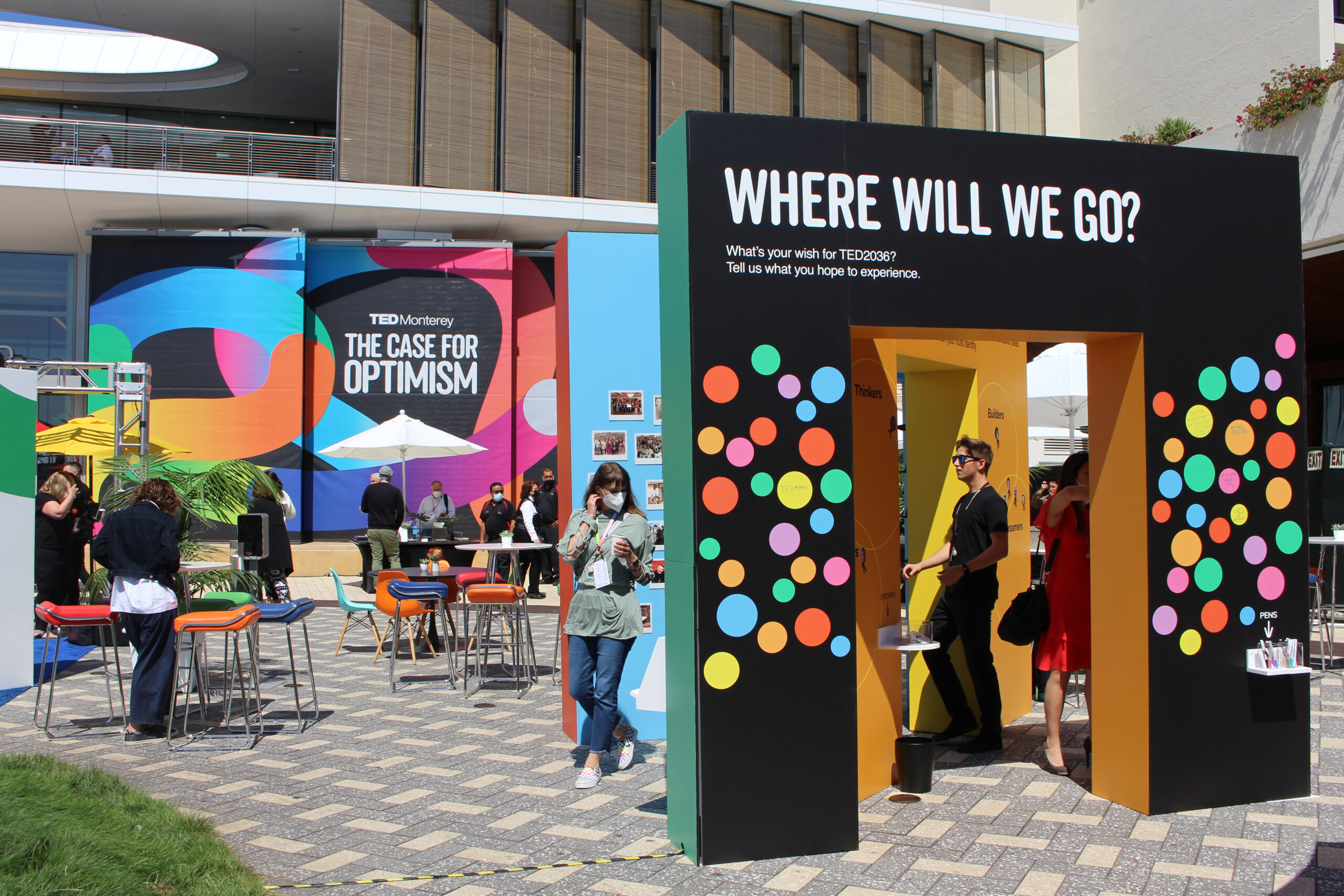And the annual gathering that had grown to some 1,800 attendees at its venue in Vancouver was limited to about 600 attendees at a Monterey conference center.
Despite none of the attendees testing positive for Covid-19, Anderson urged everyone to wear masks given the highly-transmissible Delta variant.
“I felt the weirdest combination of intense excitement and intense nervousness,” Anderson said of the weeks leading up to the conference.
“I want to salute the courage and commitment of each of you to come here; I know it wasn’t necessarily easy to come.”
The annual TED conference was among a slew of events that went virtual last year due to the pandemic, which prompted lockdowns to reduce the spread of Covid-19.
TED attendee Betul Kacar, an astrobiologist who is a professor at the University of Arizona, took solace in the turmoil roiling society.
“Chaos is needed for change to occur, and the world is definitely changing,” Kacar said during a break in the talks.
“When things go smoothly, evolution doesn’t happen.”
TED talks tackled hot-button topics from capturing the carbon that is damaging the climate to researchers developing vaccines, and people dealing with shutdowns caused by the pandemic.
“I’m a cynic by nature,” said Akash Bhatia, a managing director at Boston Consulting Group who specializes in disruptive technologies.
“It’s early in this, but some of the talks nudge a bit to the other side to be a little more optimistic.”
Conference talks are crafted into videos shared free online for what has grown into a global following since its founding in 1984.
“We are living through a cynicism epidemic,” said speaker Jamil Zaki, a psychology professor who heads a neuroscience lab at Stanford University.
“It is not a system upgrade; it’s mental malware. We can take control of our stories to escape the cynicism trap.”
gc/jh/to
© Agence France-Presse
Also read:

1 comment
I may need your help. I’ve been doing research on gate io recently, and I’ve tried a lot of different things. Later, I read your article, and I think your way of writing has given me some innovative ideas, thank you very much.